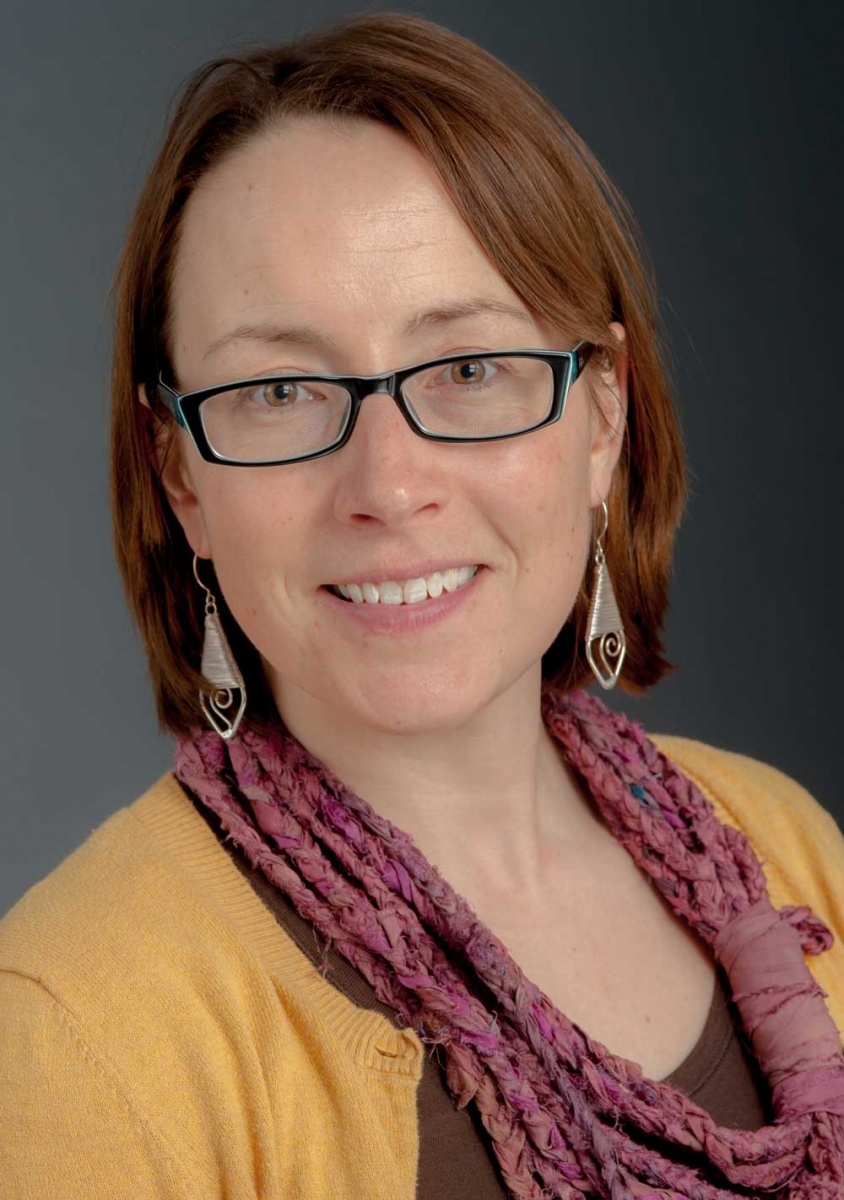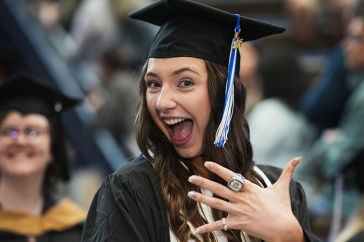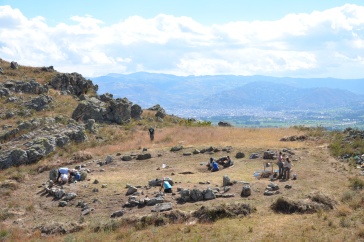Even if you haven’t seen the “Saturday Night Live” sketches featuring Alec Baldwin as Donald Trump and Kate McKinnon as Hillary Clinton, it’s likely you’ve read about them. A story on the most recent bit ran in scores of news outlets after Trump called the show a "hit job" on him.

Trump and Clinton aren’t the first political candidates to serve as fodder for late-night satire, and undoubtedly, they won’t be the last. In response to an apology from Tom and Dick Smothers, who had repeatedly poked fun at him on “The Smothers Brothers Comedy Show,” President Lyndon B. Johnson wrote, “It is part of the price of leadership of this great nation to be the target of satirists.”
But there is more to it than the laughs. For students in Meg Heckman’s journalism classes, shows like “Saturday Night Live,” “The Daily Show” and “Last Week Tonight with John Oliver” serve another purpose.
“They’re a way to help make sense of things that feel far away or are hard for students to wrap their heads around,” Heckman says.
As part of their homework assignments, she asks students to follow — and to be able to criticize — the news. More than once in this election, political satire has become the news, leading Heckman, who teaches reporting, editing, digital storytelling and media entrepreneurship, to use clips from several comedy shows as teaching tools.
“They are good discussion starters,” Heckman says. “We talk a lot about false balance in journalism — about the problems of seeking objectivity and fairness. These shows can be useful in helping students make sense of what they are hearing.”
She adds, “In most elections, that shorthand works. We talk about writing in terms of being bipartisan, of making sure it’s unbiased. But this election feels really different in terms of what has become news.”
She points to the themes that have emerged during recent months — misogyny, sexual assault, racism, immigration, objectification — and says, “These are not funny at all. That said, we have two incredibly outsized personalities and that has led to the satirical storytelling as seen on SNL. And it goes back to the primaries. We had fascinating larger–than-life characters then, too.”
Heckman says she doesn’t take sides in the classroom and she doesn’t ask students to take sides. She wants them to be able to critique the fact that one candidate’s narrative and problems are in a “completely different league.”
“It’s not the only tool we use, but satire can help us unpack that,” Heckman says, adding that the press often gets satirized, as well. “And rightly so. There’s a lot of inside baseball in political journalism, and that doesn’t always serve the voter or the community.”
“If we are mindful about what they are seeing and hearing and ensure they can ask good questions, we can help them find the truth.”
When asked how younger voters might be influenced by political satire, Heckman says it helps educate people to the issues.
“Is John Oliver a journalist? He’d say no, but he is employing techniques of contextualism that I do think help not just young people but all people who are new to certain issues. You do have to consider the source of your news, but quality information comes in lots of forms.”
What is important, she says, is to make sure voters know how to think critically. “I don’t think satire and humor can be the only mechanism we use, but it can be part of a broader conversation.”
She also notes that some social media websites that haven’t always been known for hard-hitting news have extended their journalism arm, adding other resources for information beyond the traditional news outlets. Heckman cites BuzzFeed as an example.
“Some of the best coverage of this election is coming from BuzzFeed,” she says.
In addition to providing information, Heckman says the political commentary offered by the likes of Samantha B, Trevor Noah, The Onion and John Oliver speaks to the real frustration students have with the status quo, she says.
“Our job is to have conversations around the news that students are consuming on a daily basis and, where it’s appropriate, help them to draw connections and ask the questions about what it means to be human now and what society is facing now,” Heckman says. “If we are mindful about what they are seeing and hearing, and ensure they can ask good questions, we can help them find the truth.”
-
Written By:
Jody Record ’95 | Communications and Public Affairs | jody.record@unh.edu
















































